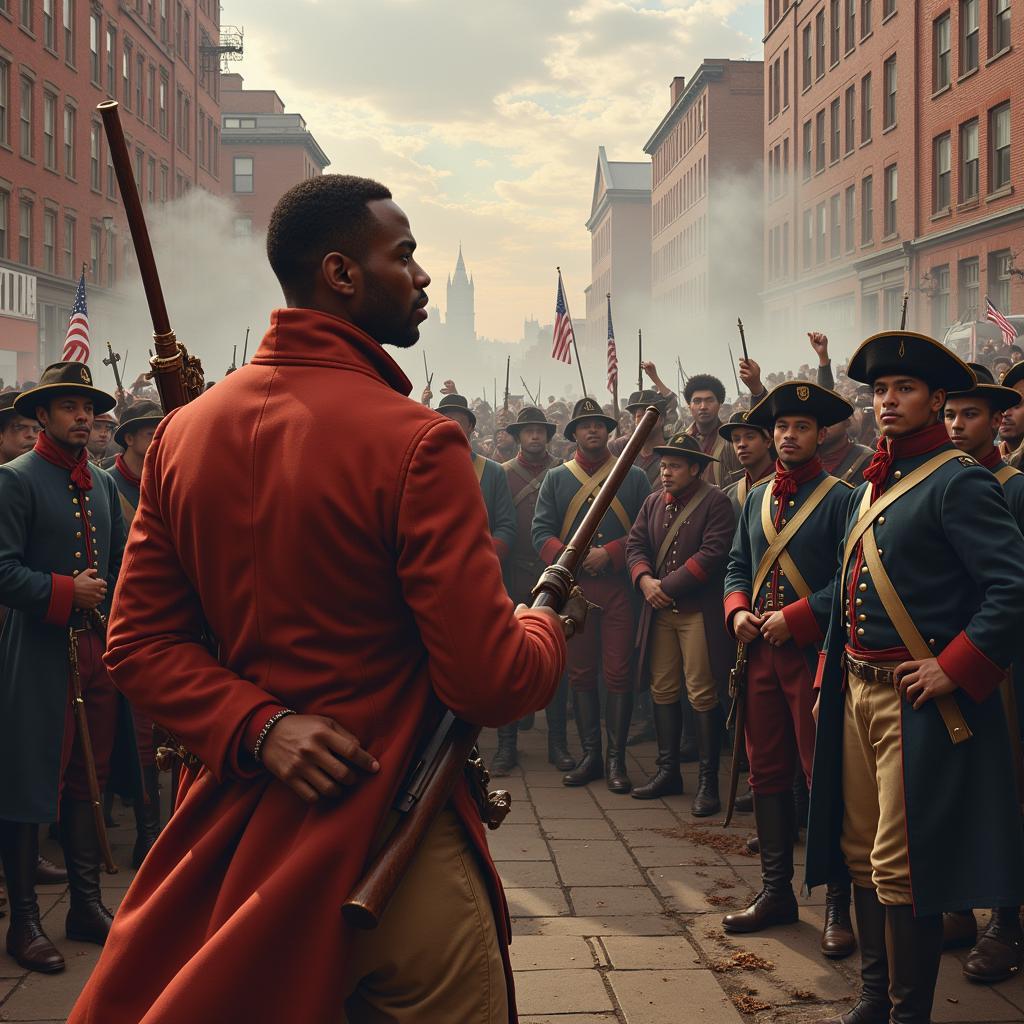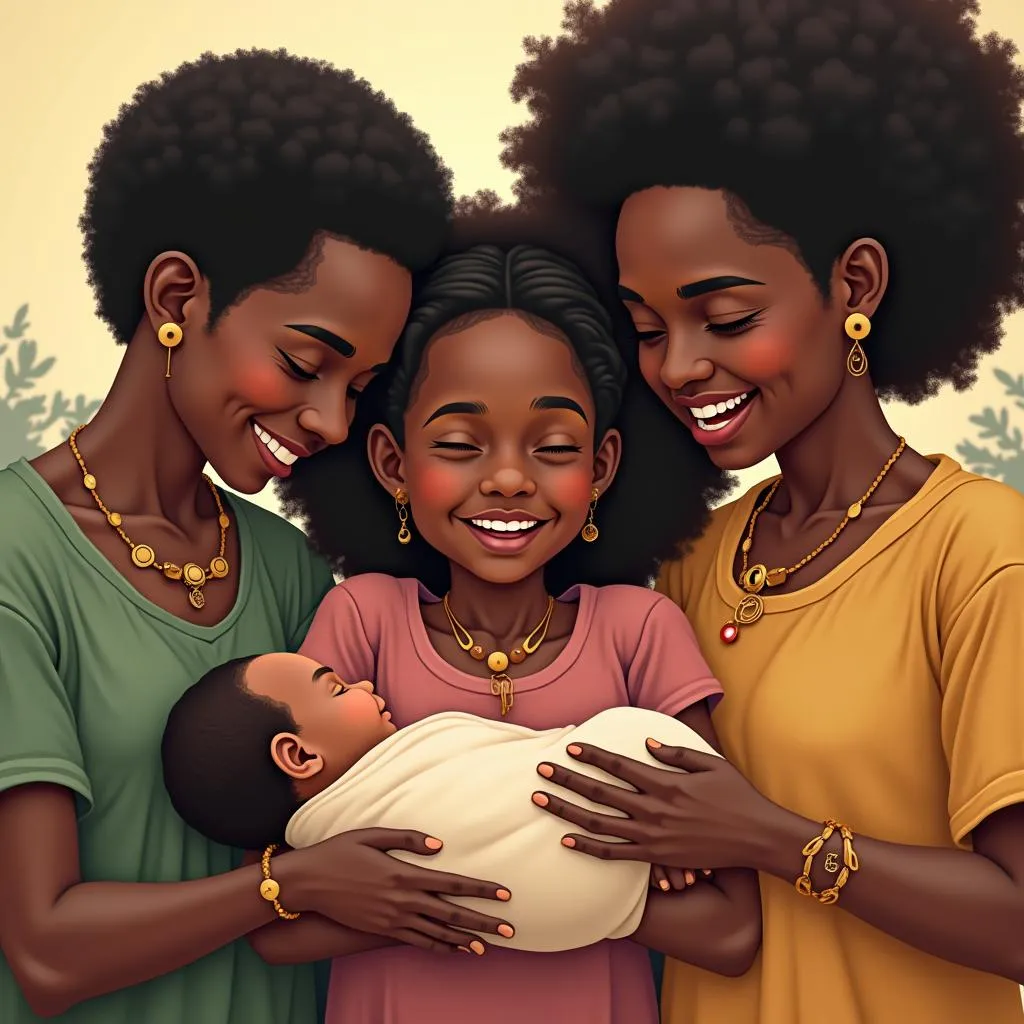African American Revolutionists: Unsung Heroes of Liberation
African American Revolutionists played a crucial role in the fight for freedom and equality, both within and beyond the borders of the United States. Their stories, often overshadowed, represent a powerful testament to the human spirit’s unwavering pursuit of liberty. From the American Revolution to the Civil Rights Movement, these individuals challenged oppression and shaped the course of history.
Fighting for Freedom on Two Fronts: African Americans in the American Revolution
The American Revolution presented a complex dilemma for enslaved Africans. While the colonists fought for liberty from British rule, the institution of slavery continued to thrive. Despite this contradiction, many African Americans chose to fight for the promise of freedom, believing that their participation would earn them emancipation and equal rights.
Crispus Attucks, a free Black man, became a martyr for the cause of liberty when he was killed during the Boston Massacre. His death galvanized support for the revolution and highlighted the hypocrisy of fighting for freedom while denying it to others.  Crispus Attucks at the Boston Massacre
Crispus Attucks at the Boston Massacre
Beyond Attucks, thousands of African Americans served on both sides of the conflict. Some joined the British forces, lured by promises of freedom and land ownership. Others enlisted in the Continental Army, hoping to secure their own liberation through military service. Their contributions to the war effort, while often overlooked, were undeniably significant.
Beyond the Battlefield: African American Abolitionists and Activists
The struggle for freedom extended far beyond the battlefield. African American abolitionists and activists, both enslaved and free, played a crucial role in challenging the institution of slavery and advocating for equal rights.
Frederick Douglass, a former slave, became a leading voice in the abolitionist movement. His powerful speeches and writings exposed the horrors of slavery and inspired countless individuals to join the fight for freedom. Sojourner Truth, another former slave, captivated audiences with her passionate advocacy for women’s rights and abolition.
These individuals, along with countless others, formed a powerful network of resistance. They organized clandestine escape routes for enslaved people through the Underground Railroad, published anti-slavery newspapers, and delivered impassioned speeches that challenged the conscience of the nation.
The Civil Rights Movement: A Continued Fight for Equality
The fight for equality continued into the 20th century with the Civil Rights Movement. African American revolutionists, inspired by their ancestors’ struggles, challenged segregation and discrimination through peaceful protests, sit-ins, and boycotts.
Figures like Martin Luther King Jr., Rosa Parks, and Malcolm X became icons of the movement, advocating for equal rights and inspiring millions to join the fight for justice. Their courageous actions and unwavering commitment to nonviolent resistance led to landmark legislation like the Civil Rights Act of 1964 and the Voting Rights Act of 1965.
Who were some lesser-known African American revolutionists?
While figures like Frederick Douglass and Martin Luther King Jr. are widely recognized, many other African American revolutionists made significant contributions to the fight for freedom. Individuals like David Walker, author of the fiery “Appeal to the Coloured Citizens of the World,” and Henry Highland Garnet, a prominent abolitionist and orator, played vital roles in challenging the institution of slavery and advocating for Black liberation.
How did African American women contribute to the fight for freedom?
African American women played a critical role in the fight for freedom and equality. They were active in the abolitionist movement, the Underground Railroad, and the Civil Rights Movement. Women like Harriet Tubman, who led hundreds of enslaved people to freedom through the Underground Railroad, and Ida B. Wells-Barnett, a journalist and anti-lynching activist, demonstrated immense courage and leadership in the face of adversity.  Harriet Tubman leading enslaved people on the Underground Railroad
Harriet Tubman leading enslaved people on the Underground Railroad
Conclusion: A Legacy of Resistance and Resilience
African American revolutionists, through their unwavering commitment to freedom and equality, have left an indelible mark on history. Their struggles and triumphs serve as a powerful reminder of the human spirit’s capacity for resilience and the enduring pursuit of justice. Their stories continue to inspire us to fight for a more just and equitable world for all.
FAQ:
- Who was Crispus Attucks?
- What role did Frederick Douglass play in the abolitionist movement?
- How did the Underground Railroad help enslaved people escape to freedom?
- What were some of the key events of the Civil Rights Movement?
- Who were some prominent female African American revolutionists?
- What is the legacy of African American revolutionists?
- How can I learn more about the contributions of African American revolutionists?
Need support? Contact us 24/7: Phone: +255768904061, Email: kaka.mag@gmail.com, or visit us in Mbarali DC Mawindi, Kangaga, Tanzania.


